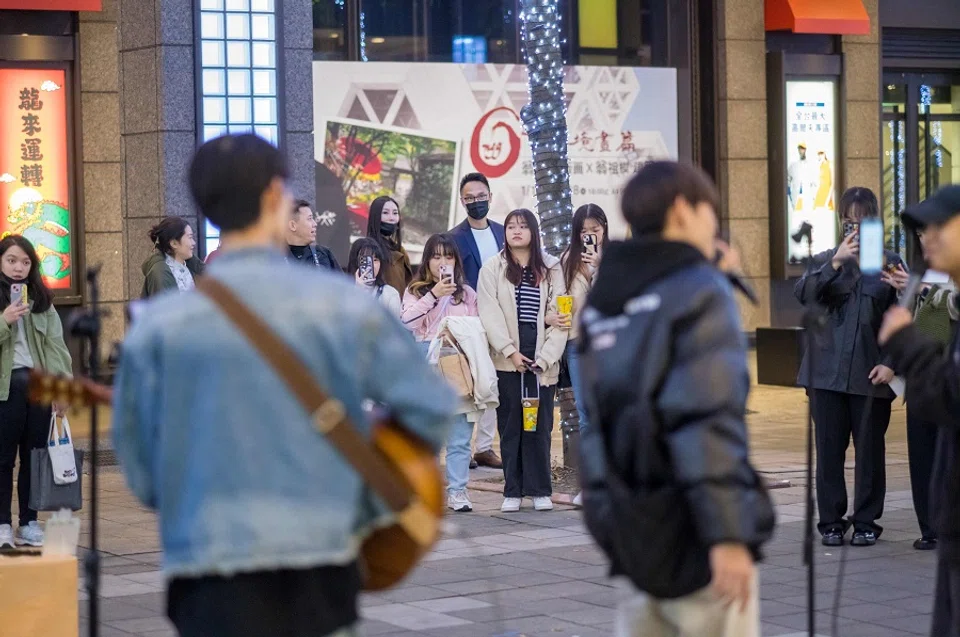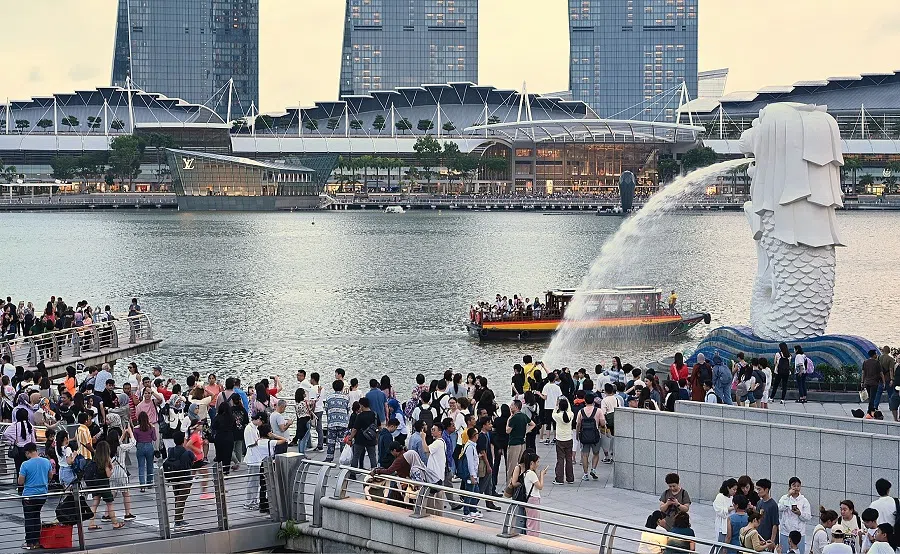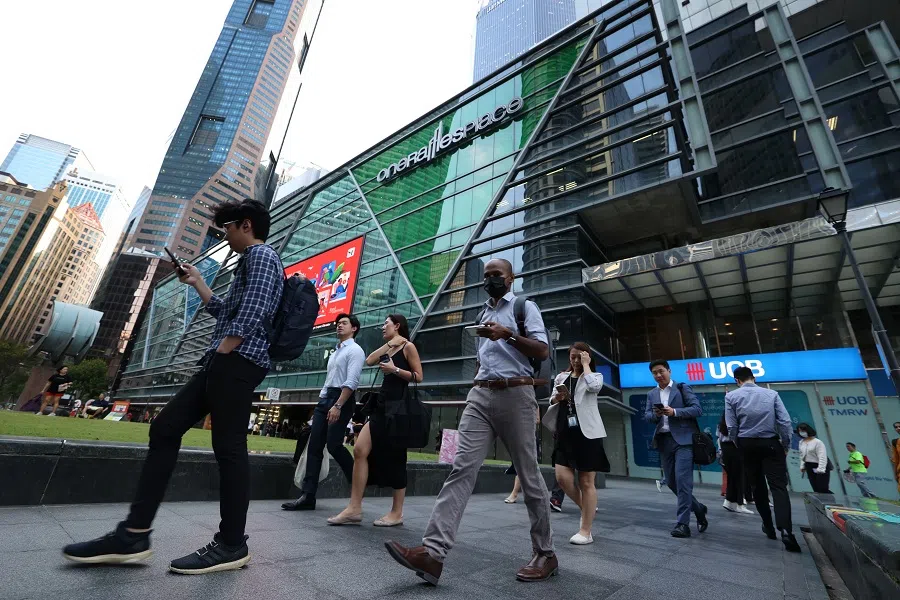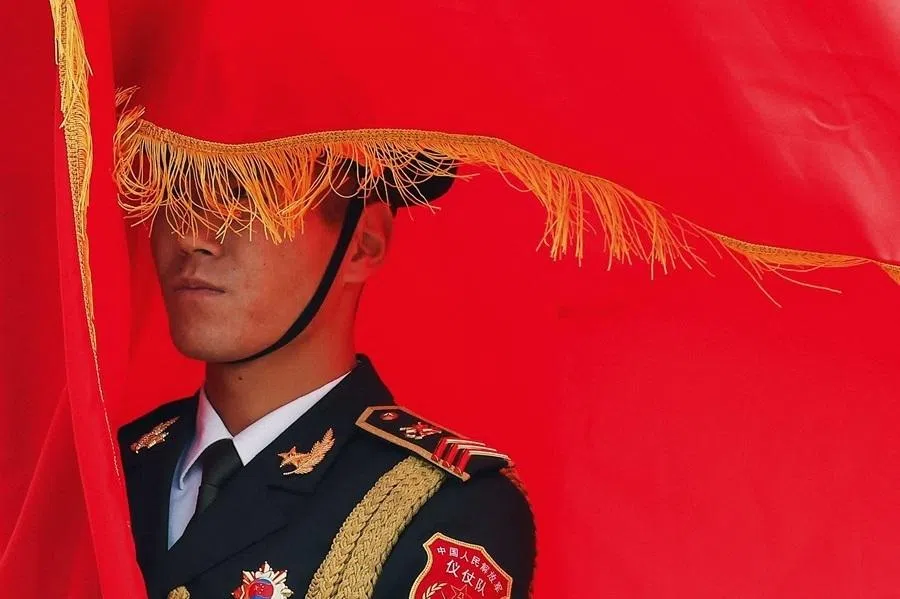More Taiwanese are venturing overseas for better pay
Taiwan is experiencing a brain drain as it loses talents to neighbouring countries such as Japan and Singapore, due to the prospects of higher salaries compared with back home. Commentator Gu Erde notes that as those countries face an ageing and declining population, they have set up favourable policies to attract talent.

On your next trip out of the country from Changi Airport, you may find that the auxiliary police officer (APO) checking your passport at the entrance to the departure hall may not be Singaporean or Malaysian, but Taiwanese.
Attracting young workforce from overseas
Due to the long-term shortage of APOs, Singapore's largest security operator Certis CISCO, which is in charge of the security work at the airport, has been recruiting security personnel from Taiwan since 2017.
In the first year, 120 people were recruited. The newly hired APOs receive a S$2,000 (US$1,480) joining bonus, an additional S$2,000 upon completing a two-year contract, and a monthly basic salary of about S$2,750, supplemented with overtime pay, allowances and benefits. While this is not considered an impressive deal in Singapore, the amount is already more than 2.5 times the salary of a fresh university graduate in Taiwan.
The outsourcing of public power of the police through the system of auxiliary policing does not exist in Taiwan; the fact that more than 7,000 APOs can carry firearms in the execution of official duties is a new experience for the Taiwanese. Outsourcing is necessary for Singapore's police force because of its labour shortage, and socioeconomic operations in the country have generally always been heavily reliant on foreign workforce. Thus, Taiwan has become the second source of APOs from overseas, apart from Malaysia.
Foreign APOs were not usually assigned to Singapore's land border checkpoints. However, due to workforce shortages, APOs of Taiwanese origins were allowed to be deployed alongside Singaporean APOs in 2018. As revealed earlier this year by Singapore's Minister for Home Affairs and Minister for Law K. Shanmugam, the number of APOs recruited from Taiwan has actually decreased to about 70.
When did other overseas destinations begin to attract young Taiwanese for work? The 2008 financial crisis was a major turning point.

Even so, Singapore is generally still quite an attractive destination for young Taiwanese to work.
Although the ongoing wave of economic globalisation was set in motion at the end of the last century, the movement of human resources, compared with that of goods and capital, was essentially restricted by more non-economic factors. At the beginning of globalisation in the late 20th century, the most common place for Taiwanese to work abroad was mainland China. For a very long time, globalisation for Taiwan meant sinicisation.
When did other overseas destinations begin to attract young Taiwanese for work? The 2008 financial crisis was a major turning point. Hit hard by the crisis, Taiwan's economy shrank by 1.81% in 2009, only the second instance since the internet bubble burst in 2001. In August 2009, Taiwan's unemployment rate reached a historical high of 6.13%, and the youth unemployment rate soared to 16.28%.
For a rather long period of time following the financial crisis, young people's wages were kept low at around NT$22,000, resulting in discontent within this demographic.
Ineffectiveness of 22K programme
In order to alleviate the unemployment problem, in 2009 the Taiwanese government launched what came to be called the 22K programme, or the "College Graduate Internship Programme". According to the arrangement thereof, the government was to provide college graduates with a monthly salary of NT$22,000 (approximately US$690) plus insurance and annuity premiums, under a one-year corporate "internship" in the name of "cooperative education".
The 22K programme provided more than 30,000 job opportunities, which was significantly helpful for youth employment. However, some problems arose. The original intention was to have "22K" (i.e., NT$22,000) as a baseline salary, with companies expected to add on thereafter. However, not only were the participating enterprises unwilling to increase the salary, some even dismissed better-paid permanent staff members after the interns were hired.
In addition, non-participating enterprises came to regard 22K as the standard for salaries for hiring new employees. After the implementation of the programme, the average salary for the age group of 20 to 24 dropped from the previous year's figure of NT$23,351 to NT$21,685. For a rather long period of time following the financial crisis, young people's wages were kept low at around NT$22,000, resulting in discontent within this demographic.

Consequently, some young people began to leave Taiwan in search of job opportunities. The number of Taiwanese that went overseas for employment has generally been on an upward trend since 2009, increasing from 662,000 to 739,000 in 2019. The outflow only saw a major decrease during the two years following the Covid-19 outbreak in 2020. However, the number of people that went abroad for jobs has rebounded rapidly from 319,000 in 2021 to 473,000 in 2022.
Singapore a high-salary destination
Who exactly are those looking to work abroad, and which countries would they go to? An analysis on the number of Taiwanese working overseas in 2022 shows that there were slightly more men (53.6%) than women (46.4%), but this difference by gender was narrowing. The 30-to-49 age group was the largest at 51.3%, followed by that of 50 and above (32.1%). People aged 15 to 29 made up 16.6%. In terms of educational attainment, 80% had tertiary or higher qualifications.
As for the places of employment, mainland China, Hong Kong and Macau were ranked first, making up 37.5% of the Taiwanese outflow. This is followed by the US (21.8%), Southeast Asia (15.0%), and Japan and South Korea (8.5%).
Notably, the number of Taiwanese that went to work in mainland China has decreased sharply because of the economic decoupling between China and the US, plummeting about 18 percentage points from 54.9% in 2018, when the trade war began four years ago.
The highly educated youths naturally preferred to work in the US, Japan or South Korea, but Singapore also became a popular location after the 2008 financial crisis. Many Taiwanese businesses pivoted to Southeast Asia in view of the region's rapid economic growth over the past ten years, as well as the deteriorating business conditions in China. Indeed, the proportion of Taiwanese going to Southeast Asia for employment had been the second highest, overtaken by that of the US-bound only after the outbreak of the Covid-19 pandemic.
"We leave home really not to run away - we do it to come back with glory!" - a young Taiwanese who worked in Singapore

How many Taiwanese are there in Singapore? It has long been claimed that they number about 30,000, but there are actually no specific statistics on the matter. However, judging by the number of people in various "Taiwanese in Singapore" Facebook groups, it can be estimated that there are roughly 80,000 Taiwanese sojourning in Singapore.
Incidentally, the vogue of Taiwanese coming to Singapore for work is somewhat linked to internet celebrities. Among them, Elsa was a strong contributing force to the "Singapore fever". Elsa graduated from an ordinary private university in Taiwan in 2011. Being without any outstanding educational qualification or experience, she could only earn a pay of "22K". After working for less than two years, the 25-year-old made her way to Singapore with only NT$20,000 in her pocket.
Showing much diligence at work, she was quickly promoted from operations to the management level, and got to save her first bucket of gold - NT$1,000,000. She was later appointed to head the company's Taiwanese branch.
Elsa wrote about her Singapore experience in her blog, which touted the idea that young Taiwanese should leave their comfort zone and venture overseas: "We really do have what it takes to pursue our dreams and not settle for mere little blessings."
She added, "We leave home really not to run away - we do it to come back with glory!"
Singapore's thriving but competitive job market
Many Taiwanese in Singapore have warned young people who are eager to venture out that Singapore's job market is highly competitive, and prices are higher than Taiwan's. Hence, life in Singapore is not necessarily better even though the salary is more than twice of what they get in Taiwan.
Nevertheless, according to the latest labour market report released by Singapore's Ministry of Manpower in March, the total number of employed people in Singapore has risen by 88,400 in 2023 to reach 3.7 million. Among them, 33.4% are non-resident employees holding work permits, and over 90% of the newly added demographic of employed individuals are non-residents. So, Singapore's job market is still thriving, and will probably continue to attract young Taiwanese.

Population ageing and decline is a common trend across many societies. Both Singapore and Japan are actively developing ways to attract foreign talent to make up for their labour shortages. Taiwan is slightly lagging behind in this regard.
In the 1990s, Singapore began to actively attract foreign professionals, taking measures such as issuing various employment passes and launching several programmes. Japan has formulated its own programmes since 1988, actively attracting high-end foreign talents with specialised technical expertise and skills.
Taiwan's strategy of recruiting high-level overseas talent used to be mostly focused on getting overseas Taiwanese to return rather than attracting foreign talent. It was not until 2017 that Taiwan drew up the Act for the Recruitment and Employment of Foreign Professionals, and aims to recruit 100,000 foreign professionals by 2030 since the act was amended in 2021. However, only 13,000 such individuals have been recruited as of the end of last year.
Even though the 22K policy has ended, the problem of low wages remains an ongoing nightmare that drives Taiwan's young people abroad.
Taiwan is currently facing strong pressure as its neighbouring countries poach its workers. In 2022, Taiwan's working population dropped from 11.92 million in the previous year to 11.85 million, while the number of people that went overseas for employment surged from 319,000 to 473,000. Japan alone has attracted a great number of Taiwanese. According to Japan's official data, there were more than 57,000 Taiwanese in Japan in 2022, and this demographic has grown by 152% over ten years.
The issue of low pay remains an important factor in Taiwan's failure to retain talent. In the ten years from 2012 to 2021, operating surplus as a percentage of Taiwan's GDP rose from 31.82% to 36.53%, while the component of employees' remunerations shrank from 45.77% to 43.03%. In other words, capitalists are getting an increasingly larger piece of the overall economic pie than the workers. Even though the 22K policy has ended, the problem of low wages remains an ongoing nightmare that drives Taiwan's young people abroad.
This article was first published in Lianhe Zaobao as "低薪驱使台湾人到新加坡寻梦".



![[Big read] When the Arctic opens, what happens to Singapore?](https://cassette.sphdigital.com.sg/image/thinkchina/da65edebca34645c711c55e83e9877109b3c53847ebb1305573974651df1d13a)

